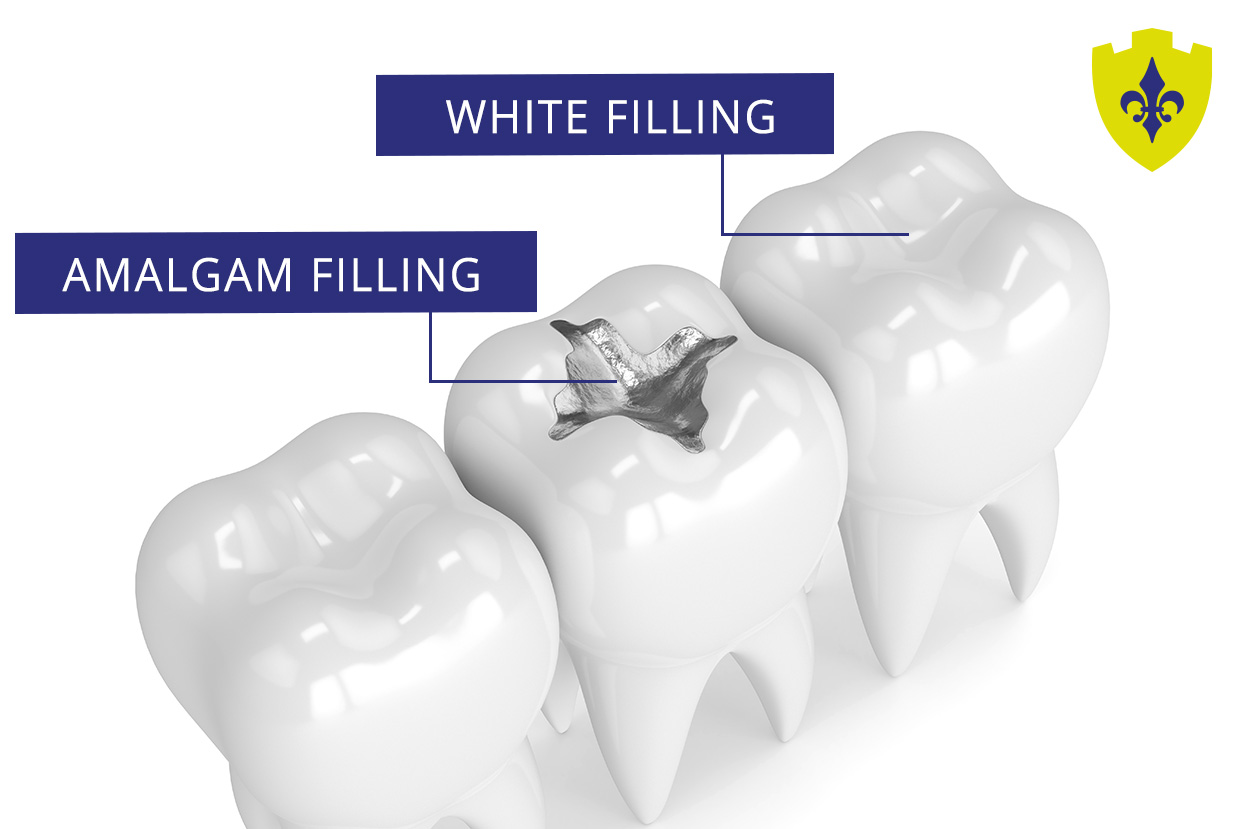
Traditional grey, or amalgam fillings, are no longer the fillings of choice for many people.
Amalgam fillings, along with being unsightly, contain mercury and can be potentially toxic, whereas white fillings, made from resin and inorganic materials such as glass ceramics and/or porcelain, are completely safe. When this mixture is combined with enamel and dentine bonding techniques, white fillings give your damaged teeth a more natural look and feel.
They have become the standard in most modern dental practices and we find that many of our patients are deciding to replace their old, unsightly silver fillings with the safer, more adaptable and attractive composite fillings.
Your Castlebawn dentist will be happy to address any concerns you may have about your amalgam fillings.

Apart from being non-toxic, white fillings also look more natural, especially since they can be shaped and contoured to match the appearance of the surrounding teeth.
When you follow a regular oral health routine there’s no reason your new white filling won’t last a lifetime.
As with many dental procedures you may experience some mild sensitivity for a few days after having the treatment. However, for most people the treatment is pain-free. Should you feel any discomfort it typically goes away on its own in a few days.
Keep in mind that because white fillings use an adhesive to bond to your tooth, the dentist will probably not need to remove as much of the natural tooth as they would with a metal filling so the chances of any discomfort are much less.
There’s a good chance they won’t! The Castlebawn Dental team are trained to the highest standards and they will take the time to make sure your tooth looks amazing.
By restoring your tooth to its original shape and colour it may be difficult even for you to spot your new filling!
Protect your new investment
Once your white filling is in place it’s important to follow a few simple rules to make sure you don’t damage it before it has completely settled.
After your filling has been placed we recommend:
Not eating and drinking anything if your mouth is still numb.
You don’t bite or chew on hard or sticky objects.
You should contact your dentist immediately if you have any extreme soreness or pain.
Fill in your details below and one of our team will be in touch with you shortly. We look forward to seeing you soon.